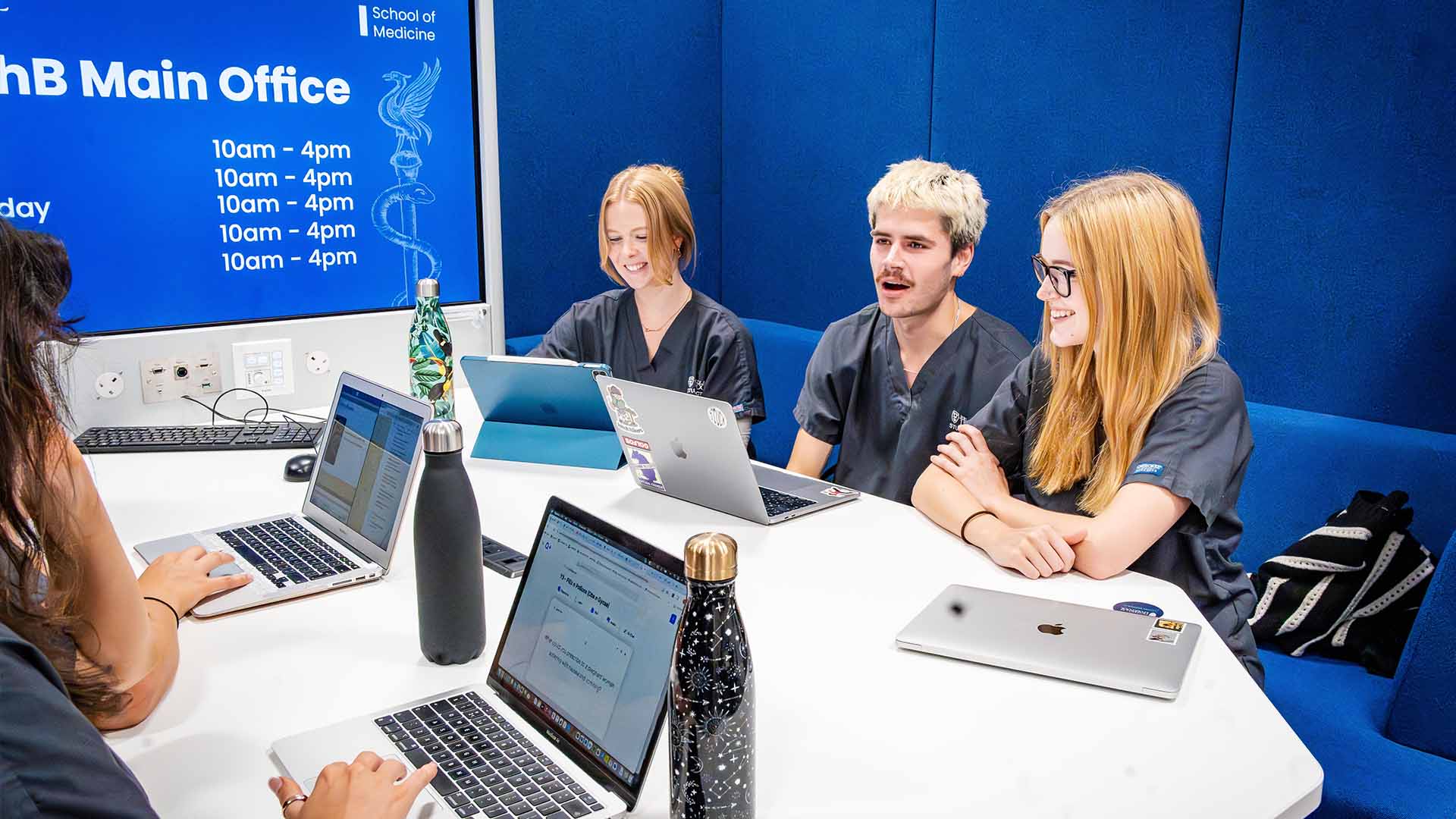
This month I’ve been invited to explore Case Based Learning (CBL) for our FACE members. CBL is one of the core teaching modalities facilitated by University and NHS clinical staff on campus to students in Years 1 and 2, and at trust sites to those in Years 3-5.
You may well have already had experience of CBL and facilitated a session within your Trust. Whether you are new to CBL or an experienced facilitator, I hope to take you on a tour of CBL here at Liverpool, and after that, who knows, you might be interested in facilitating a session in the future.
If you prefer to listen as you go about your busy clinical day, why not listen to when we caught up to have a chat with Dr Emma Beddoes (Graduate Entry Programme Lead) who has facilitated and helped evolve CBL over the last 8 years to what it is today. She takes us through what CBL is, the theory, its benefits and its value to us as facilitators:
For those who would prefer to read about CBL, explore more below:
What is Case Based Learning (CBL)?
CBL is an educational teaching modality where clinical cases are used to allow learners to review their learning processes, current knowledge level and critical thinking methods in a welcoming, constructive, and stimulating learning environment. This model empowers learners to problem solve from an early stage with both peer and facilitator led sessions complimenting their current system block or placement.
At Liverpool, our campus-based year groups benefit from CBL group and facilitator continuity across the academic year which really helps to forge a collaborative ethos which is at the heart of effective learning through CBL. Our trust based students, equally benefit from colleagues such as yourselves as speciality experts to help guide them. Crucially it all centres around clinical cases which builds a patient led diagnostic approach to best prepare our student doctors for their future clinical roles.
Initially meeting as small peer groups, ‘Team CBL’ encourages our learners to explore their existing knowledge base, alongside their peers, from their lectures and anatomy sessions using their system block learning outcomes. Evaluating their clinical reasoning in this team based safe learning space centres around the flipped classroom method, whereby our students add gradually to their own existing knowledge and identify their own development needs and gaps.
Following this, we return as a larger group for ‘Facilitated CBL’. This is where one of our experienced clinical facilitators guide the conversational and dialogic, rather than didactic, based session with learners by exploring and stimulating self-evaluation using the principles of Socratic questioning. This technique employs open questions that help our learners to re-examine their own way of thinking, to help them draw out the knowledge and answers rather than simply being provided them. This promotes higher quality learning for our student doctors of the future.
Why we use CBL in our curriculum?
Helping to produce future doctors who are suitably equipped to stay up to date with evidence based medicine requires an array of different skills. CBL is one of the many ways we cultivate this imperative skillset. The ability to explore new areas of learning, whilst re examining existing knowledge, against current evidence from reliable sources within both individual and team settings, all encompass and help to achieve this aim.
We believe with the guidance of experienced and trusted facilitators our student doctors are furthering their knowledge base and problem solving approach to clinical cases. Just as importantly the direct feedback they receive from facilitators nurtures confidence in their patient led learning processes.
We know how much our student doctors value this clinician input and, for this reason, we are proud to deliver all sessions with a clinical facilitator.
A common question is how CBL differs from problem based learning (PBL)? The important contrast here is that PBL requires learners to create their own learning outcomes in comparison to CBL, whereby outcomes are provided with specific clinical cases to help steer our learners whilst still strengthening independent thinking. PBL sessions traditionally meet in larger groups and are often facilitated by non-clinical staff and therefore lacks the experienced clinician to guide Socratic questioning.
We hope you have a better understanding of CBL at Liverpool. For those of you working at our partner Trust sites and are interested in finding more about CBL, why not go to LEO to view our recent training for Trust based CBL.
Dr James Young